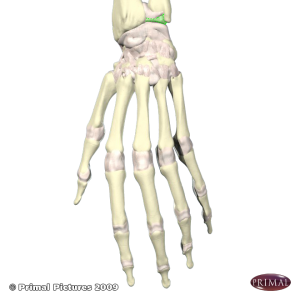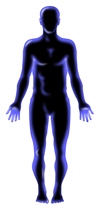Triangular Fibrocartilage Complex Tear
Wrist Cartilage Tear
What is it?
The triangular fibrocartilage complex (TFCC) is found within the wrist joint at the little finger side. A TFCC tear refers to damage of the cartilage.
How does it happen?
Injury to the TFCC most commonly occurs through a compressive force to the wrist. This can occur when the hand is used to break a fall or to support bodyweight such as in gymnastics. Damage can also occur to the TFCC in sports such as golf, perhaps with a heavy contact, or in racket sports through repetitive loading.
How does it feel?
A TFCC tear causes pain felt at the wrist. This is usually made worse by loading the wrist through activities such as press ups or pushing up from a chair. Swelling may also be present and this may come on rapidly in an acute injury situation or gradually over time through micro-damage to the cartilage in repetitive activities. Swelling is normally seen over the back of the wrist in TFCC injury.
What should you do?
In the first instance you should cease any aggravating activities and protect the wrist from loading where possible. Icing the wrist can also help to settle any irritation and target any excessive inflammation. Icing should be applied for 15-20 minutes several times per day. Crushed ice in a damp towel works well. Alternatively, ice massage is a good alternative and only needs to be applied for 5-10min or until the area is numb. To ice massage, fill a polystyrene cup with water, freeze it, and massage the exposed end of the cup over the affected area. **NB please be careful and protect the skin as ice massage and icing can burn**
What shouldn’t you do?
Do not perform any activities that increase the blood flow to the area, such as repetitive lifting, gripping or swinging activities. In addition, do not apply any heat to the area which includes hot showers, baths or heat rubs and sprays. These may increase the swelling in the area and potentially prolong your recovery.
Could there be any long-term effects?
Most TFCC tears get better within a number of weeks. However, some injuries can result in long-term effects depending on the severity of the injury. In more severe tears, surgery may be required to remove the torn cartilage so as to provide pain relief. In these cases recovery may be prolonged and good post-operative physiotherapy support is important to optimise your recovery.
Management
Initially a qualified musculoskeletal and sports injury specialist will be able to help in the diagnosis and assist with the initial management of the acute injury. They may feel that medical imaging would be of benefit (x-ray, MRI) in assisting with the diagnosis and extent of injury. Treatment can include local soft-tissue techniques, joint mobilisation, rehabilitation exercises and ultrasound to assist with the healing process, however in more severe injuries surgery may be required. Assistance can be provided by musculoskeletal and sports injury physiotherapists in both conservative and post-surgery rehabilitation.
Disclaimer: This information is not a substitute for medical advice and you seek professional advice from a doctor, physiotherapist or other healthcare professional





